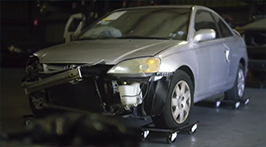Medical devices are defined as any product or equipment used to diagnose, cure, treat, or prevent a disease or condition, whether the device is used by a consumer in a home setting or by a healthcare professional in a clinical or laboratory setting. Medical devices and medical products are meant to solve health problems and improve a patient’s quality of life, but often, medical devices are found to be defective or unsafe.The U.S. Food and Drug Administration (FDA) regulates the safety and efficacy of medical devices through the Center for Devices and Radiological Health. Types of medical devices monitored by the FDA include home healthcare devices such as ventilators, nebulizers, blood glucose meters and other diabetes supplies, apnea monitors, infusion pumps, syringes, and wheelchairs. Clinical and laboratory devices such as surgical tools, heart valves, breast implants, x-ray machines, pacemakers, dialysis filters, and hip replacements are also closely watched by the FDA.
Medical Device Recalls
Medical devices are often the subject of recalls if there is a violation of FDA law and the product is shown to be defective. Recalls of medical devices do not necessarily require the product to be returned to the manufacturer in all cases, but the device will often need to be inspected, repaired, adjusted, re-labeled, or monitored for potential health problems.
Defective medical products can be particularly dangerous to a patient who trusts that the device will work properly. Medical devices such as defibrillators and dialysis filters have contributed to serious injury, painful side effects, and even death when the products were found to be defective due to manufacturing errors or other problems.
The FDA has established the following categories for all medical device recalls:
- Class I (high risk)- There is reasonable chance that the product will cause serious health problems or even death
- Class II (less-serious)- There is a possibility that the device will cause temporary or reversible health problems
- Class III (low-risk)- There is little chance that using or being exposed to the device will cause health problems
Dangers of Defective Medical Devices
Past recalls of defective medical devices include:
- CPSC recalls 10,000 Work N’ Leisure “Practi-VALVE” CPR training devices.
- Medtronic Defibrillator recall (October 2007): the defibrillator was linked to at least 5 deaths and more than 1,000 injuries after being implanted in at least 268,000 patients. The defective device had an ultra-thin lead wire design that was not thoroughly tested in humans and was found to break easily and emit a large and painful shock, rendering the device useless.
- Baxter Dialysis Filter recall (2001): the defective filters were linked to more than 50 deaths worldwide due to a defect that allowed toxic cleaning chemicals to be pumped back into a patient’s body.
